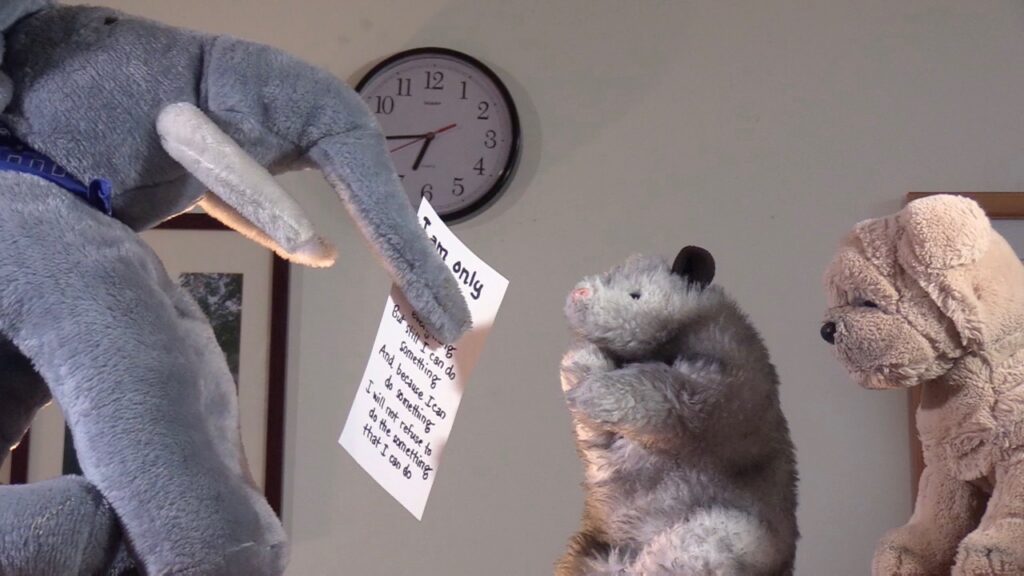My Unitarian parents had my older sister and me say prayers before bed when we were children, more as a cultural practice than a spiritual practice; in the middle of the twentieth century in the United States, it was a cultural norm to have your children say their prayers before bed. But I have only the vaguest memory of this, so I suspect we only did it a handful of times, probably when we were quite young. I don’t remember my younger sister ever saying bedtime prayers, though maybe they made her do it once or twice, too.
I like the idea of some kind of reflective practice at the end of the day, though I have no interest in reciting “Now I lay me down to sleep.” Pythagoras (c. 570 – c. 495 BC), in one of his “Golden Verses,” outlined a different daily practice, which I think would make a good alternative:
“Never suffer sleep to close your eyes after going to bed, till you have examined, by your reason, all your actions of the day. ‘Wherein have I done amiss? what have I done? what have I omitted that I ought to have done?’ If in this examination you find that you have done amiss, reprimand yourself severely for it; and if you have done any good, rejoice.” (1)
Or, as “John Shadow,” an eighteenth century English writer, described the practice: “It was a good piece of advice which Pythagoras gave to his scholars, that every night before they slept they should examine what they had been doing that day, and so discover what actions were worthy of pursuit tomorrow, and what little vices were to be prevented from slipping unawares into a habit.” John Shadow then goes on to suggest that when we get up in the morning, we should examine our dreams to learn even more about ourselves, because in our dreams we imagine circumstances which give us imaginary opportunities of pursuing our good or bad inclinations “to the utmost,” thus revealing to us our true temperament. (2)
I make every effort to forget my dreams, considering them leftovers and trash that should be emptied out, not picked through. And as for Pythagoras’s advice, I’m not sure I want to spend the moments before falling asleep reviewing all the stupid things I’ve done that day, and then reprimanding myself; that seems like a sure recipe for insomnia. Either that, or I’d fall asleep while still going over the long list of things I’d done wrong that day, which seems likely to lead to nightmares.
There is also the Confucian spiritual practice of “quiet sitting,” developed by the Neo-Confucian school about a thousand years ago. The Confucians would practice quiet-sitting in the middle of the day: Sitting quietly in a chair with the back straight and hands on your knees, they would examine the “mind-heart” (unlike us Westerners, the Confucians considered mind and heart to be one). Examining the mind-heart is not easy; there is ancient Chinese metaphor that equates the mind-heart with a lively monkey which prefers to run around and finds it difficult to sit still. The Confucians taught that when you do quiet-sitting, the goal is to get the lively monkey of the mind-heart to sit quietly so you are able to reflect on your “ren,” your humaneness; that is, you reflect on how human you are. (Quiet-sitting technique may sound like Buddhist meditation, though the Neo-Confucians would say it was different: Buddhists sat quietly to achieve an independent mental state, Neo-Confucians sat quietly to better understand themselves, so that they could act ethically and fit into the social order.) (3)
The Neo-Confucians who developed quite-sitting had servants, so they could devote a couple of hours in the middle of each day to this practice; they didn’t have to go off to work. The middle of the day might be the best time to engage in this practice: less chance of falling asleep (especially if you do it before lunch), and no chance of developing insomnia or nightmares. This may be an advantage of bedtime prayers: when you pray, you can repeat verbal formulae — “Now I lay me down to sleep”; “Our God who is in heaven”; etc. — and this repetition requires less concentration and less self-discipline, and is more conducive to comforting sleep.
I am not going to return to “Now I lay me,” nor am I fully convinced by either the Pythagoreans or the Neo-Confucians. But some kind of self-reflection each day, something to move me towards greater humaneness, would be very valuable indeed.
To be continued….
Notes:
(1) The translation is from The Commentary of Hierocles upon the Golden Verses of Pythagoras, rev. ed. (Glasgow: Robert Urie, 1756), p. 140; which was based on the trans. into French by Andre Dacier, as trans. from French into English (London: Jacob Tonson, 1707), see p. 304.
(2) From the August 27, 1714, issue of The Spectator; attributed to John Byrom. The Spectator vol. V, ed. Donald F. Bond (Clarendon Press: Oxford, 1965), p. 4.
<3) The description of quiet-sitting is adapted from John H. and Evelyn Nagai Berthrong, Confucianism: A Short Introduction (Oxford: Oneworld, 2000), p. 34.



